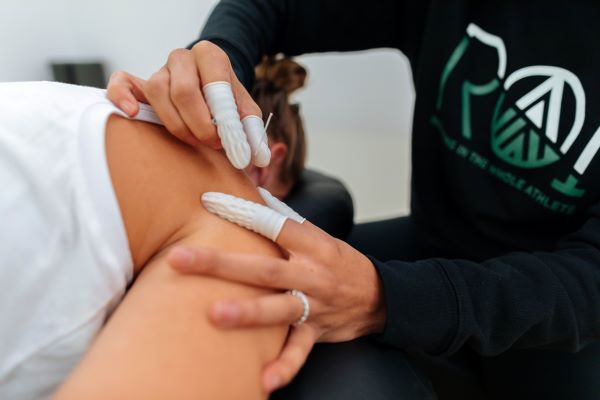Acupuncture has been around for thousands of years, with origins in traditional Chinese medicine, and is based on Meridians and the flow of Qi; whereas dry needling is anatomically based and targets dysfunctional tissues. Dry needling has been in use for a few decades, and it’s commonly offered as a modality for people experiencing muscle, ligament, or tendon pain. Read on to learn the answers to 7 frequently asked questions about dry needling.
1.) How does it work? In a session of dry needling, one or more micro-filament needles gets inserted into a muscle trigger point. Trigger points are bands of tight, dysfunctional muscle tissue. The discomfort in muscles that is treated by dry needling often emerges after injury, from overuse, or as a result of poor movement patterns. During treatment, needles may remain in your muscle for anywhere from about 10 seconds to 20 minutes. Details of your treatment will depend on the location of and number of needles as well as the goals of your treatment.
2.) Which conditions is it used for? Some conditions include: shoulder pain, rotator cuff pain, tendinitis in the biceps, iliotibial band syndrome, Achilles tendinitis, low back pain, tennis elbow, whiplash or neck pain, muscle strains, hip pain, and TMJ pain.
3.) What are the benefits? It can decrease muscle tightness, increase blood flow, and ultimately, reduce pain in patients. Often, patients report relief directly after treatment. Some additional benefits can include an increase in range of motion and flexibility.
4.) Is it safe? Dry needling has been used as a safe treatment for many different conditions. Most patients report little to no discomfort during dry needling treatment. The most common side effects of dry needling include bruising, bleeding, or soreness at the treatment site. These symptoms are usually gone within 48 to 72 hours after treatment.
5.) Who can perform it? A licensed medical professional, including physical therapists, athletic trainers, or chiropractors, will complete a comprehensive evaluation with a patient to determine whether the use is appropriate. These professionals also assess mobility and muscle function in addition to performing the procedure. Certifications for dry needling vary by state.
6.) How is it different than acupuncture? Dry needling focuses more specifically on treating musculoskeletal and neuromuscular conditions by releasing trigger points. This process tends to use fewer needles than acupuncture and can also be paired with electrical stimulation, which aids in contracting and relaxing of the muscle. In contrast, acupuncture is used to treat a wide range of conditions which include, pain, fatigue, infertility, headaches, insomnia, anxiety, and depression. Acupuncture also aims to restore energy flow.
7.) Where can I go to get treatments? Dry needling is often paired with exercise or other physical therapy techniques. While you can talk to your primary care provider about your muscle, tendon, or ligament pain, to consider a treatment plan for dry needling, places with physical therapists—such as gyms or physical therapy offices—could be your go-to source for treatment.
A facility like ROI offers one-on-one physical therapy services that serve to bridge the gap between regular rehab and real human performance. At ROI, doctors of physical therapy specialize in helping to heal sports and orthopedic injuries. Physical therapists also evaluate the body’s movement system, skillfully diagnosing movement dysfunction and prescribing tailored treatment plans for patients. Addressing the underlying cause of pain or injury in patients is key to healing and rehabilitation. ROI’s staff of physiotherapists provide clients with a comprehensive recovery management program.
ROI’s integrated approach includes the teamwork of physical therapists, exercise physiologists, strength and conditioning coaches, and registered dieticians, keeping the whole body of the patient in mind. Clients are also provided with expert feedback for their recovery plan.
Dry needling is just one of the services that ROI provides. Contact ROI at 512.962.9141 to discover more about how dry needling can be part of your wellness and recovery.

